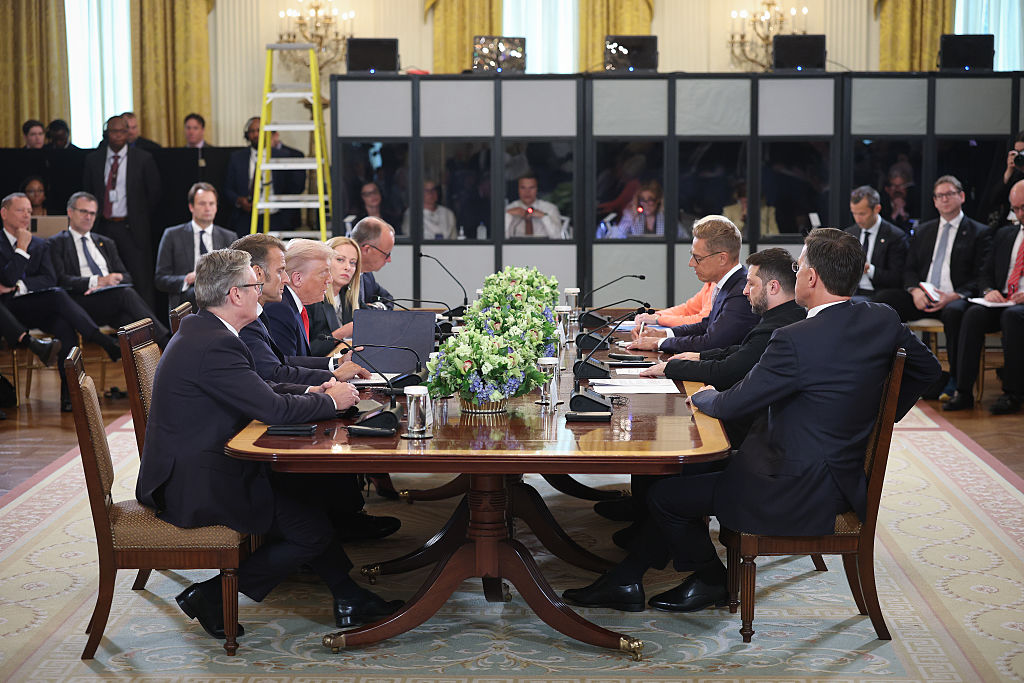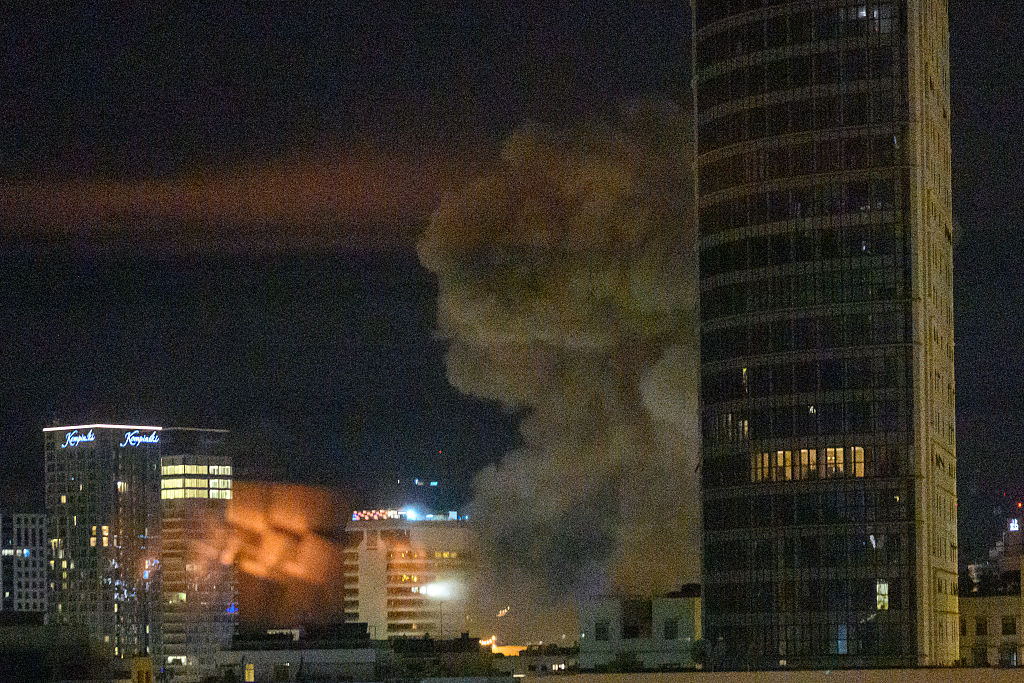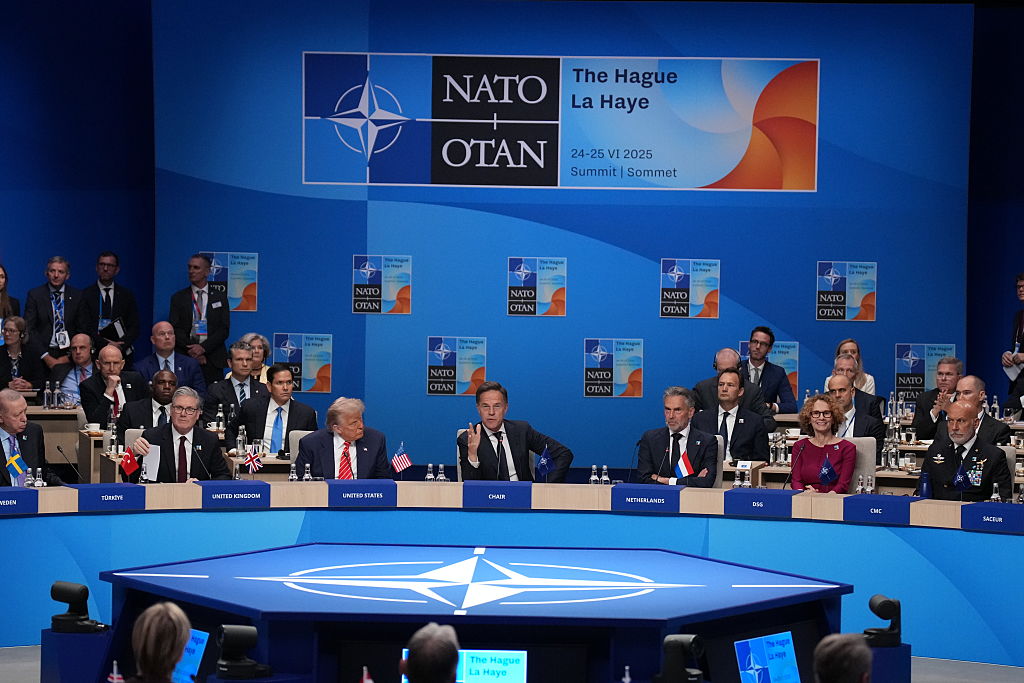Will President Donald Trump send federal forces into crime-ridden Chicago? As now, there was the usual chorus of indignation when Trump sent them into Washington, DC, back in August. As is usually the case with left-wing commotion, the facts have been eloquently showing just how out of touch the Left is: Since Trump’s DC crime crackdown began, crime has been falling at a remarkable pace; the city is getting cleaner; quality of life is returning to the city’s inhabitants. Even Washington’s Democratic mayor, a critic of Trump’s move, has now been forced to admit that the city hasn’t been this safe in years. And that raises the question: Shouldn’t Europe’s political class, whose cities, too, have become so obviously unliveable as of late, drop the sanctimonious nonsense and follow suit? Europeans would certainly thank them for it.
Unbeknownst to most outside the United States, the nation’s capital has long been an unholy mess. In 2023, DC experienced a homicide rate of 40 per 100,000 inhabitants. That compares with 2.0 in Moscow, 1.2 in London, 1.0 in Paris, 0.7 in Madrid, or 0.4 in Tokyo. When it comes to violent crime, Washington, again, surprises: 1,150 crimes per 100,000 residents, compared to 300 in London and 200 in Madrid. DC also reported a rate of 141 carjackings per 100,000 residents. In Stockholm, the same figure was 4 for the year; in London, 2. Trump’s National Guard deployment changed things. Between August 12th and 26th, violent crime fell by 23 per cent on the two previous weeks; the number of robberies, from 51 to 31; homicides, from 6 to 2. The policy worked.
Can’t we have a bit of that in Europe, please? Perhaps Europe’s cities aren’t facing a crisis quite as dramatic as Washington’s, but they are still sinking in violence, squalor, and unease. Sweden, once a model of orderliness, now records two and a half times the EU average for gun deaths. In April this year, a 16-year-old sprayed bullets into a Uppsala hair salon, killing three teenagers. Last year saw bombings and shootings nearly every week, many tied to child recruits for gangs. The government deploys “dialogue police” and CCTV cameras. The gangs deploy scooters and Kalashnikovs. You can imagine who’s winning.
Britain is another example of this. By March this year, 53,000 knife crimes were logged in England and Wales. The number has risen by 81 per cent in the past 10 years. That’s not an abstraction. It’s children robbed outside schools, commuters slashed on trains, and pensioners stabbed for loose change. We know 262 people were killed with knives in 2024, fifty-seven of them under 25, 17 were under the age of 16. Meanwhile, the army sits in barracks. Is it really such heresy to imagine a company of soldiers patrolling knife-crime hotspots instead of waiting for the next NATO exercise in Estonia or training to defend Pokrovsk?
El Salvador under President Bukele is the most convincing case of what a nation can achieve when it employs heavy-handed means against the scourge of crime and street violence. President Bukele sent tens of thousands of soldiers against the MS-13 criminal gang. He put the men responsible for ruining and terrorising his people in jail. International NGOs screamed. Ordinary Salvadorans cheered. The result is that what was once the world’s most violent country now has a homicide rate lower than that of the United States—under 3 per 100,000 where once it was over 100. People walk freely at night for the first time in decades. They have their country back—as they should.
Compare that to Britain again. Twelve thousand people arrested each year—not for stabbing, not for robbery, but for tweets and Facebook posts. The state mobilises resources against harmless online posts while gangland culture goes virtually unchallenged on the streets. These are the upside-down priorities of Starmer’s Britain. When people say “Europe is losing its mind,” this is what they mean.
Looking at Trump’s results in Washington, the question becomes simple: Why not Europe? Why aren’t soldiers returning peace, quiet, the law, and public order to the chaotic slums of Lisbon, areas so abominable they are described by visitors as “favelas”? Such areas have been allowed to fall outside the authority of the state, often living under gang rule as genuine narcocracies in the heart of Europe. Both the nearby populations and the people living in such intolerable conditions deserve to be liberated from this disgrace. Ordinary police forces obviously lack the resources to accomplish the task, so the military should.
Of course, such policies are not ideal and should not last permanently. The goal should be to crush the hold of gangs, arrest the culprits, scare and demobilise them, break their hold of terror over the communities they have taken over, and open up the path for a restoration of law by milder, more ordinary means. But the principle—that a state can and should use all its means to restore public safety—is hardly radical. It is common sense. It would have been taken for granted just by Europeans just a few generations ago.
The alternative is unacceptable. In vast areas of France, cafés and post offices have vanished; the mairie flies the flag but the State itself has disappeared. Anomie, anxiety, and poverty are the consequence. In British towns, high streets are shuttered, addicts shoot up in broad daylight, and shoplifting surges by 20 per cent year-on-year. Sweden sees bombs and shootings, Germany deals with migrant gang wars in Berlin, Brussels suffers car-burnings. Bold action, like Trump’s, should be the answer.
Trump’s critics never forgave him for showing how quickly a show of force can restore calm. Bukele proved that even in the most violent society, crime is not an eternal law—it can be crushed, and the people freed from its claws. The real scandal is not that Europe refuses to learn. It is that Europe prefers the disorder, the posturing, the slow death, to what would work. We should do better.





The Lisbon funicular disaster is further evidence that Europe is falling apart